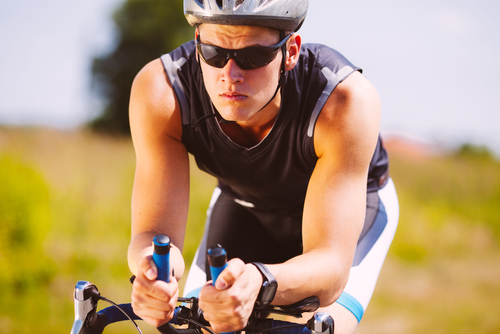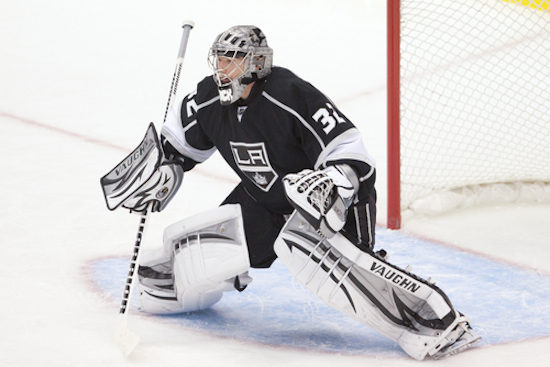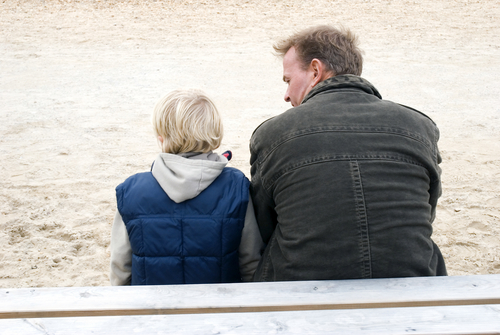Defining Mental Toughness With The Los Angeles Kings
By Dan Peterson, TeamSnap's Sports Science Expert
The day after the Los Angeles Kings clinched a spot in the 2014 Stanley Cup Finals by beating the Chicago Blackhawks in Game 7, there was one phrase that kept popping up in articles describing the team’s path through the playoffs - mental toughness. It may be one of those sports psychology terms like “grit” or “momentum” that cannot be clearly defined or proven other than saying, “you know it when you see it.” For the first time in NHL playoff history, the Kings won three Game 7s on the road as well as being 7-0 in elimination games this postseason. With their “back against the wall”, “nothing to lose” and a need to “dig deeper”, they seem like the working definition of mental toughness.
But, what makes one player “tougher” than the next? Why do some take the lead during important, stressful situations while others wilt? Can mental toughness be trained or is it a mix of genetics and experiences that create this inner will to succeed?
Sport psychologists Félix Guillén and Sylvain Laborde thought the best place to start with these questions was to compare athletes with non-athletes to see if toughness can be developed over time using sports.
They begin with their preferred general definition of mental toughness, “‘a collection of values, attitudes, emotions, and cognitions that influence the way in which an individual approaches, responds to, and appraises demanding events to consistently achieve his or her goals” (Gucciardi, Gordon & Dimmock, 2009, p. 54) From this description, Guillén and Laborde break it down into four individual characteristics:
- Hope: “an expectation of success relative to goals”
- Optimism: “a general expectancy that good things will happen”
- Perseverance: “consistency in achieving one’s goals and not giving up easily when facing adversity of difficulties”
- Resilience: “a positive adaptation towards risk or adversity and the ability for the individual to maintain stable levels of physical and mental function”
The researchers gathered 927 athletes, ages 13-26, who were actively participating in one of 9 different team sports or 25 individual sports with an average of six years of experience. Additionally there were 931 non-athletes, ages 18-25, who had never taken part in any organized sports. They asked each group to complete four standard, non-sport surveys about each of the four main components. These surveys asked the participant to respond to a question on a self-assessment rating scale. Some examples include:
- Hope - ‘‘I can think of many ways to get out of a jam’’.
- Optimism - ‘‘In uncertain times, I usually expect the best’’.
- Perseverance - ‘‘I am often so determined that I continue working long after other people have given up.”
- Resilience - “I do not dwell on things that I can’t do anything about”
Depending on their answers, a person can be rated on their overall mental toughness, despite being an athlete or not. The results were crystal clear - athletes scored almost five times higher than non-athletes across all four components. It didn’t matter which sport played, athletes with more experience scored higher, as did those whose average practice session lasted longer.
The research was published in the journal Personality and Individual Differences.
So, can playing sports develop mental toughness that can be used throughout life? The researchers aren’t sure about that just yet. It’s possible that sports attract those that are already tough. “Although we have been able to identify that athletes have higher levels of mental toughness than nonathletes, this choice of design means we are unable to say whether practising sports develops these characteristics or not,” the authors wrote. “To address this problem, we believe that future research should study mental toughness characteristics from a developmental perspective.”
The Kings hockey team certainly showed evidence of hope, optimism, perseverance and resilience during their playoff run. Yet, it’s hard to definitively say that their conquered opponents, the Blackhawks, Ducks and Sharks, had less mental toughness. In fact, they probably developed more from those experiences.
NEW! Free Sports Organization Resources
All of TeamSnap's ebooks, articles, and stories in one place. Access Now
Similar Articles:

Sending Subliminal Pep Talks Can Boost Athletic Performance
By Dan Peterson, TeamSnap's Sports Science Expert Young…
Read More

Defining Mental Toughness With The Los Angeles Kings
By Dan Peterson, TeamSnap's Sports Science Expert The…
Read More

Pre-Game Pep Talk's Influence on Performance
By Dan Peterson, TeamSnap's Sports Science Expert …
Read More
